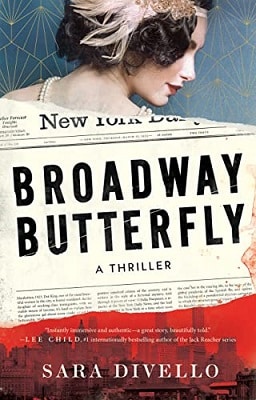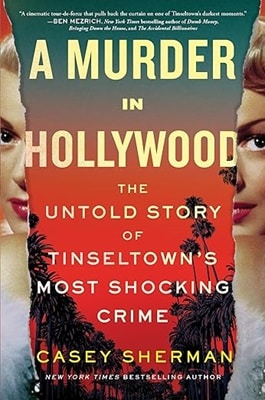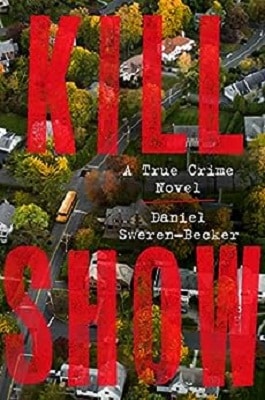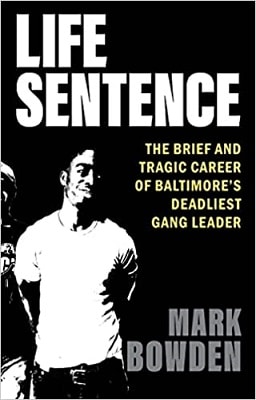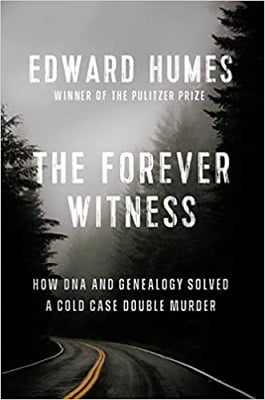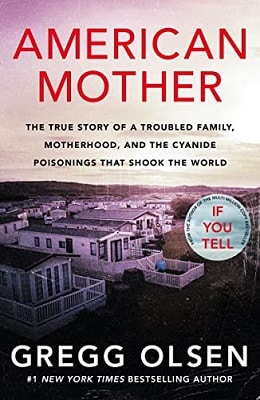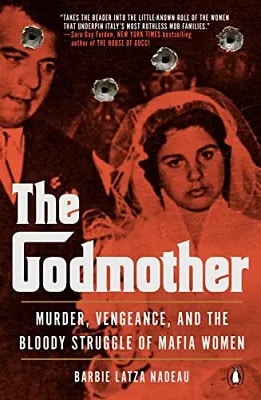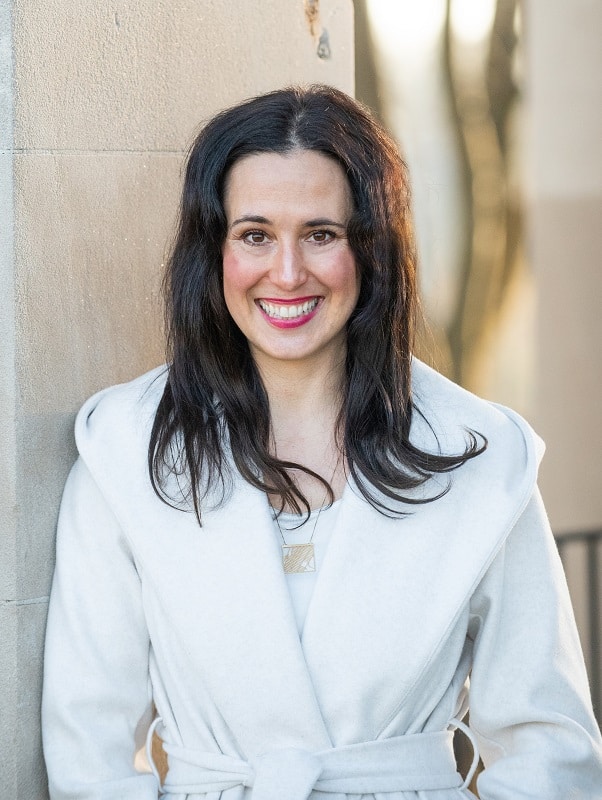
Q&A
Sara DiVello
Sara DiVello is a true crime writer and the creator/host of Mystery and Thriller Mavens, a popular author series and interactive Facebook group. For her weekly Mystery and Thriller Mavens live events, she has interviewed more than 300 authors, ranging from the bestselling and world-renowned (Dean Koontz, Patricia Cornwell, Lee Child, Jeffery Deaver, Tamron Hall, Karin Slaughter, Ruth Ware, Lisa Unger, and many more) to the buzziest debuts. While creative and active on her own social media platforms, DiVello also serves as the director of social media strategy for the International Thriller Writers association. Sara has appeared on CBS, ABC, and CNBC, as well as in the New York Times, Forbes, the San Francisco Chronicle, and more.
Q. How did you first learn about the murder of Dot King, and subsequent cover-up?
Sara: The official answer is: I stumbled upon this crime by accident. The real answer is: As a yoga teacher and a bit of a mystic, I think stories and their tellers find each other exactly as they are meant to. Here’s how I found mine: I was home visiting my family in Philadelphia for Thanksgiving. The next day, as we ate leftovers and hung out, my uncle Ed reminisced that after class back in high school in the ‘60s, they used to trespass over to “the castle” and sneak cigarettes. In the 1920s when it was built, it was known as the Versailles of America. It was the third-largest private home in the U.S. and larger than the White House. It had long since been demolished—one of the greatest architectural losses in U.S. history—but there are still ruins standing today. Needless to say, I needed to know more. My family piled into cars and caravanned over to go check it out. There, in an average Philadelphia suburb, between the Subarus and tulip beds, were, indeed, the ruins of a once-great estate: headless statues, the edge of a pool where a fountain had once gurgled, pillars that stretched 50-feet in the air. I was captivated and joyfully dove down the research rabbit hole. A few months later, I found the grand home was connected to a murder, and I immediately knew this was a story I wanted to tell.
Q. You must have done a lot of research for Broadway Butterfly. What was that process like and how long did it take?
Sara: It took me nine years to research and write this book. I love research and could happily spend even more years scouring sources in search of more tasty tidbits on this case. My research took me to far-flung and fascinating places—to police officers, professors, and even a psychic who works with law enforcement on cold cases! I went to universities, contacted presidential libraries, applied for research passes to rare books collections. I spent untold hours in the New York Public Library, the Boston Public Library, and combing the Library of Congress online collection. I search for (and found!) the personal papers of some of the characters. I went to New York’s Historical Vital Records, which is part of the Municipal Archives, the J.P. Morgan Library and Museum, and many more places. It was joyful, infuriating, time-consuming, and for this research-loving, history-loving nerdy girl, utterly addictive. You can join me on the adventure on my website: https://www.saradivello.com/behindthescenes.
Q. Did you write and research simultaneously?
Sara: I researched exclusively for the better part of a year, and then I started writing while continuing to research, which definitely slowed down the writing process, but also infused it with so many more texture, details, and cool facts.
Q. Why did you decide to write Broadway Butterfly as a novel?
Sara: GREAT question! After nine years of (exhaustive, obsessive) research, I’m here to report that some things just cannot be gotten…like suspect interrogations at police headquarters and in the D.A.’s office, private conversations between the reporter covering the case and her editor, the police commissioner and the lead detective investigating the case, a beleaguered husband and wife….Writing this as a novel gave me the freedom to fill in those conversations, which I felt able to accurately envision because my research into each character and the case itself was so exacting. Also, I had a lot of direct quotes from newspapers, so I learned the rhythm, word-choice, and accent of these real-life people and could extrapolate from there.
Q. What does it mean to you to have Broadway Butterfly publish on the 100th anniversary of when the murder case was closed without an arrest?
Sara: It feels incredibly meaningful. I happen to be a somewhat obsessive person who cares very deeply about justice. Dot King was denied justice. Someone literally got away with murder. The unfairness of that really sticks in my craw. One of my intentions in writing this book was to bring the case to light, and to give readers the evidence to reach their own conclusions. In doing so, and in revealing the truth, I hope that in some small way, justice will be given to Dot King.
Q. What was your favorite discovery when researching Dot King?
Sara: Oh my gosh—there are so many! Learning how Dot bucked convention and lived life on her own terms. It was daring for women to have short hair and scandalous to color it blond, but she did both. She lived alone, owned two cars—and drove them herself!—made her own money, had multiple lovers. She came from humble circumstances—her father was a night watchman at Wannamakers and her mother was a laundress—but she climbed to almost unimaginable wealth and counted some of the most powerful people in the world among her circle of friends.
Q. Tell us about Julia Harpman and her significance.
Sara: Julia Harpman was a pioneering woman of journalism. She was one of the lead crime reporters in New York at a time when less than 20% of women worked outside the home. The very few women who worked in newspapers were more apt to cover the so-called “ladies pages”—cooking, astrology, advice for the lovelorn, and the Society Pages which covered the fashion, love lives, parties, and trips of members of Society, who were the celebrities of the time. But Julia worked on the hard-hitting crime beat. The courage and chutzpah that this incredible reporter embodied is truly extraordinary. Julia Harpman’s life and career deserves to be taught in classrooms and I hope she’ll one day take her rightful place in history.
Q. Is there one thing you wish for readers to take away after reading Broadway Butterfly?
Sara: Yes! In 100 years, so much has changed—technology, fashion, food production and preservation! AND absolutely nothing has changed—people still worry about their digestion, women still want thick, silky manes of hair, Wrigleys is still making gum, and Maybelline is still producing makeup. Most of us still want good meals, good health, good friends, and a good night’s sleep. We are still very much human. Unfortunately, issues surrounding race and class, power and privilege, corruption and injustice, socio-economic access and advantage, still plague us. There’s a dangerous trend of wanting to ignore history and bury or deny that which is painful or unpleasant. But if we don’t look at where we’ve been, we’ll never change where we’re headed. We also need to value real, respectable journalism and journalists. The fourth estate are the guardians of democracy and we need to invest in and protect them.
Q. What’s next for you? Can we expect more true crime stories?
Sara: Yes! I am #TeamTwain! The legendary Mark Twain was right when he said “truth is stranger than fiction.” That’s what I love about true-crime stories. I absolutely plan to lean into that and write more and I hope my readers will come along with me for the next wild (and hopefully wildly entertaining!) rides.

